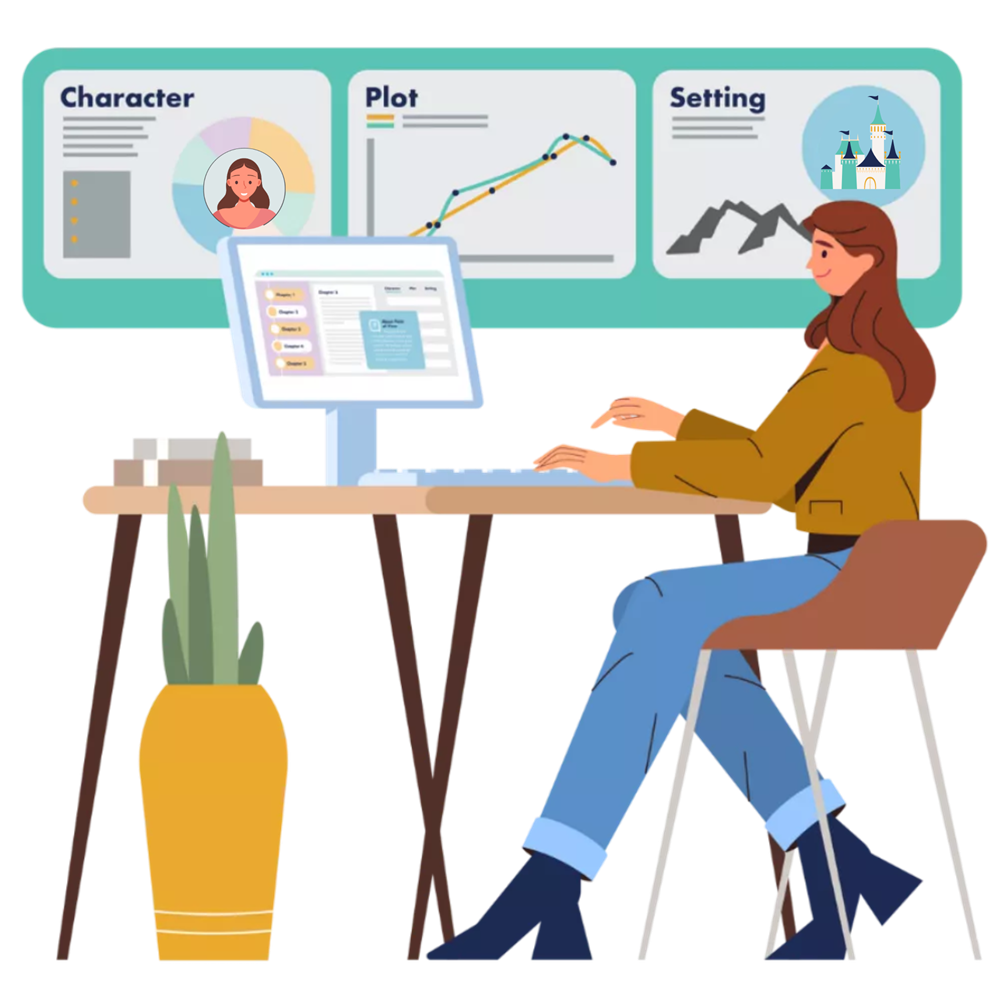Why do people read novels?
We think it’s to find out what happens next. But what happens next is only interesting if it the “what happens next” involves characters or something important to a character.
Characters ARE your story. They act and react. They create emotion. They show motivation. Without any of this, you don’t have a story. That’s a tall order for your characters. So how do you make sure you’re getting the most out of them?
You rewrite and revise until your characters are performing at their best.
Taking on the task of rewriting your first draft doesn’t have to be overwhelming. A little organization will help you complete your rewrite without it taking forever.
Think of your novel in terms of CHARACTER, PLOT and SETTING. We’ve already covered a high-level view of how to rewrite PLOT, so let’s focus on CHARACTER.
Characters and Novel Structure
You’ve finished your first draft, so most likely you know who your characters are, what they look like, where they work and so on. But what about how they fit into your story structure? To understand this and make the most of it, you must evaluate your characters in the context of the structure of your novel.
By this point, you’ll also know if you’re writing from first-person point of view (POV) or third person. You’ve also decided if you are writing from multiple points of view. In essence, you know who is telling your story. Fictionary will help you keep track of POV and how you balance your POV scenes throughout the novel.
When thinking about the POV character for each scene, ask yourself:
- What is the POV goal for the scene?
- How does the goal relate to the plot?
- What or who is working against the POV goal?
- What happens if your POV doesn’t achieve the goal?
- How does scene affect your POV character?
Once you’ve answered the questions, check each scene to ensure the reader will understand the answers. You can show, tell, or imply the answers. It’s up to you to find the right balance. The more important the event, the more you should show the reader what’s happening. The less important could be told quickly, so the reader can move on to the good stuff.
In later posts we’ll delve into detail for each question, using our Fictionary approach to help you make the most of your characters.
Don’t know if it’s time to revise your novel? Check out When to Self-Edit in Your Writing Journey
If you’d like to listen to an in-depth discussion on story editing, check out Story Edit Like A Pro.
StoryTeller is creative editing software for fiction writers. Transform your story, not just your words. Successful stories depend on your ability to edit, improve, and revise your work. Only when you master story editing, can you master storytelling.
Why not check out Fictionary’s StoryTeller free 7-day trial and tell powerful stories?

